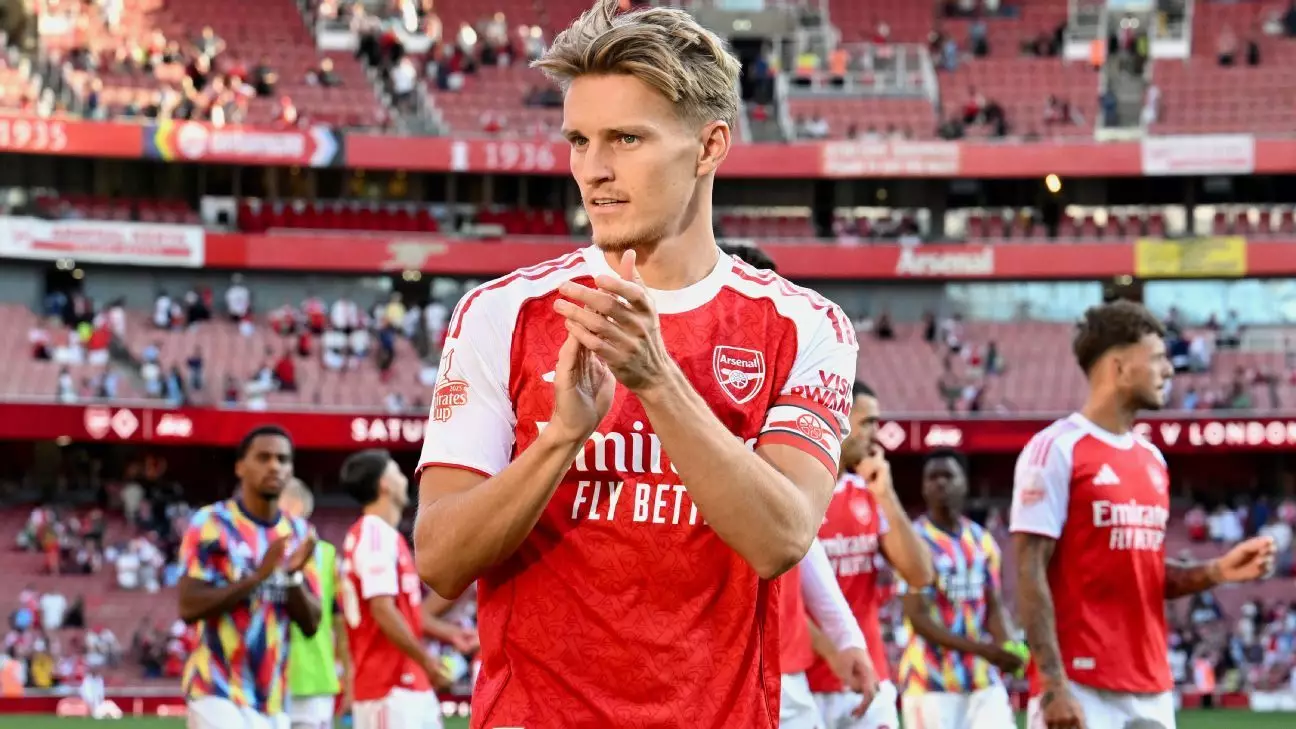The debate surrounding the captaincy of Arsenal and the reliability of leadership within the team underscores a profound truth: leadership is ultimately validated by the collective. Mikel Arteta’s unwavering support for Martin Ødegaard’s role as captain reveals a deep confidence rooted in democratic team dynamics rather than arbitrary decisions. While critics like Tony Adams argue that Ødegaard’s captaincy could be a weakness in the team’s quest for silverware, Arteta’s insights highlight a shift in leadership paradigms—one where player consensus and morale carry more weight than nostalgic defaults or subjective opinions. It’s a testament to modern football that influence is determined not by reputation or legacy alone but by the genuine respect and trust of teammates, which Ødegaard clearly enjoys. This stance emphasizes that true leadership is rooted in the ability to inspire, support, and unify—traits that Ødegaard embodies, according to his peers.
Redefining the Role of a Captain in Contemporary Football
Leadership in elite sports is no longer confined to the captain’s armband alone. It involves cultivating a culture where players feel empowered to voice their opinions through formal processes, such as voting. Arteta’s transparency about the voting process and the collective decision-making mechanism signifies an evolution in team management. It reflects an understanding that a captain’s authority must be rooted in the respect of fellow players, not just managerial decree. The insistence that the squad’s preferences matter more than external opinions shows a progression from hierarchies based on seniority to those built on mutual trust and shared vision.
Moreover, this approach fosters a sense of ownership among players, making them more invested in the team’s success. If the players believe Ødegaard is the right figurehead to galvanize the squad, it becomes a self-fulfilling prophecy—motivation and unity are reinforced when the leadership is rooted in collective endorsement. This method can serve as a blueprint for future teams seeking a more inclusive and effective leadership structure.
The Importance of Consistency in League Regulations
While leadership discussions dominate, on-field discipline and adherence to league regulations are equally critical to Arsenal’s ambitions. Arteta’s comments on the inconsistencies in officiating and rule enforcement highlight a broader challenge within the Premier League. Last season’s harsh penalties for time-wasting incidents by Declan Rice and Leandro Trossard serve as a reminder that regulation must be applied fairly to preserve the integrity of competition.
Arteta’s proactive approach—engaging with referees and clarifying expectations—demonstrates strategic foresight. He acknowledges that adherence to rules is vital for maintaining fairness and for Arsenal’s own tactical discipline. The hope that regulations will be consistently enforced this season responds to a need for stability and transparency, which are indispensable for the competitive landscape to function optimally. When officials act decisively and uniformly, teams can focus on their tactical plans and better showcase their skills without the distraction of inconsistent officiating.
The Broader Implication for Arsenal’s Ambition
At its core, Arteta’s stance is rooted in a clear vision for Arsenal: to become a dominant force capable of winning major titles while playing with integrity and unity. The emphasis on player-led decisions and disciplined compliance reflects a mature approach that balances confidence with accountability. For Arsenal, this isn’t just about winning matches or titles—it’s about setting standards and fostering a culture that can sustain excellence.
In the face of external criticism and internal debates, Arteta’s conviction suggests that success will ultimately come from a cohesive unit driven by shared belief. The team’s internal confidence in Ødegaard’s leadership, combined with a level playing field in officiating, creates a foundation for sustained growth. Arsenal’s pursuit of excellence, therefore, depends on trusting their collective judgment and maintaining discipline within the rules—a dual strategy that could finally propel them back atop English football.
This season presents an opportunity not merely for tactical ingenuity but for redefining what true leadership means in the modern game—one rooted in collective support, integrity, and unwavering conviction. Arsenal’s journey is poised to be a testament to these evolving principles, with the potential to inspire other clubs to reexamine their own leadership and discipline structures in pursuit of lasting success.


Leave a Reply